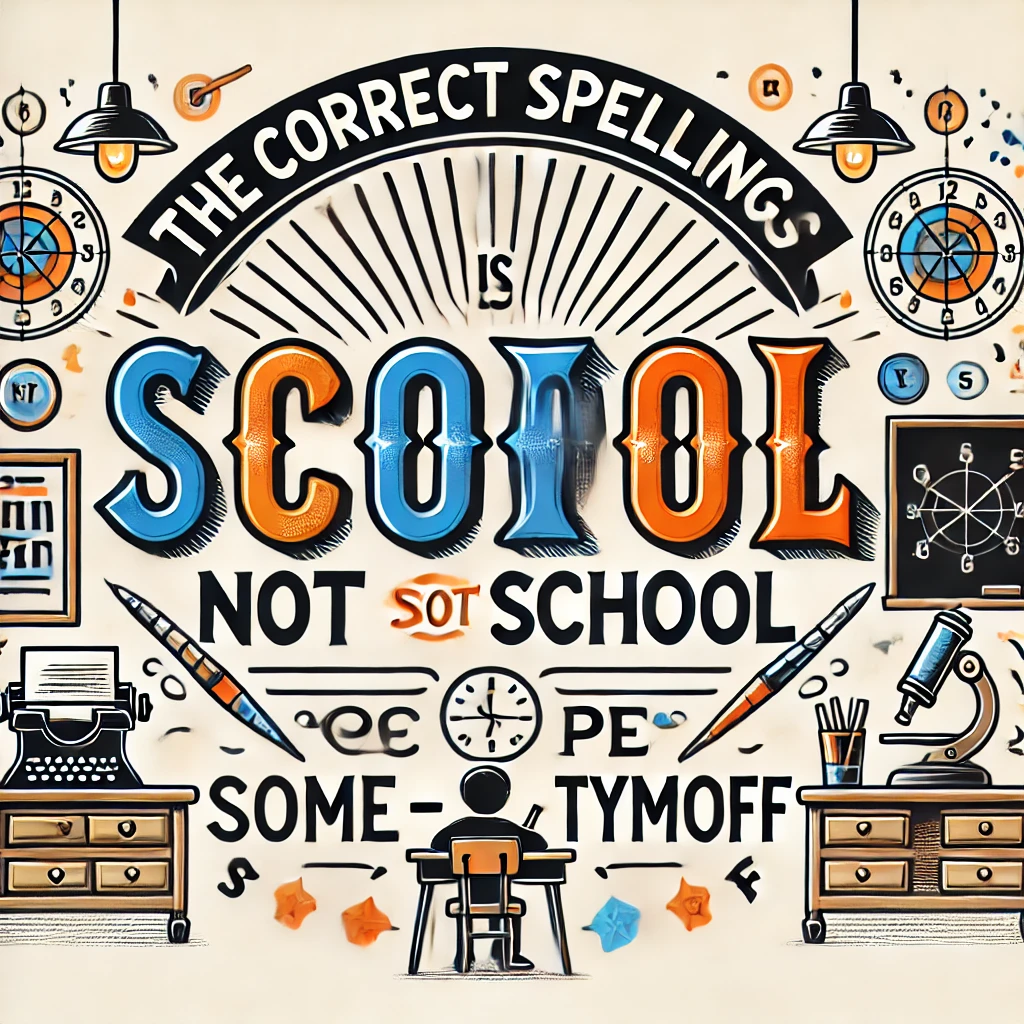Introduction
In the world of communication, the correct spelling is school not school. some pe – tymoff captures the importance of spelling in our everyday lives. Spelling is not just a trivial detail; it plays a crucial role in effective communication. This article will delve into why spelling matters, common mistakes people make, and strategies to improve spelling skills. By the end, you’ll appreciate the significance of correct spelling and how it can enhance your writing and communication.
The Importance of Spelling Accuracy
Spelling accuracy is fundamental for clear and effective communication. When words are spelled correctly, they convey the intended message without confusion. Mistakes, even in simple words like “school,” can lead to misunderstandings. For instance, if someone reads “the correct spelling is school not school,” they may become confused about which spelling is accurate.
In professional and academic settings, proper spelling reflects attention to detail and respect for the reader. It can also influence the credibility of the writer. Therefore, mastering spelling is essential for anyone looking to communicate effectively.
Clarifying the Phrase: “the correct spelling is school not school. some pe – tymoff”
At first glance, the phrase “the correct spelling is school not school. some pe – tymoff” may seem humorous or nonsensical. However, it serves a vital purpose in illustrating the impact of spelling mistakes:
- “The correct spelling is school not school” emphasizes the need to spell “school” correctly, highlighting that even common words can be misspelled.
- “Some pe – tymoff” playfully demonstrates how errors can create confusion, leading to phrases that make little sense.
This breakdown underscores the importance of spelling accuracy. By examining such phrases, we can better appreciate the need for precision in writing and communication.
Common Spelling Mistakes
Spelling errors can occur in any word, but some are more prevalent than others. Here are a few common types of spelling mistakes:
Typographical Errors
These mistakes happen when fingers hit the wrong keys on a keyboard. For example, “schoo” instead of “school.” These errors are often unintentional and can happen to anyone, especially in fast-paced writing environments.
Phonetic Mistakes
Mishearing or misunderstanding how a word is pronounced can lead to spelling errors. For example, someone might spell “school” as “skool” based on how they hear it. This mistake highlights the importance of phonetic awareness in spelling.
Autocorrect Failures
With the rise of technology, autocorrect features can sometimes introduce errors instead of correcting them. For instance, typing “school” might inadvertently lead to “schoo” if the software misinterprets the input. Knowing the correct spelling helps in identifying and correcting these mistakes.
Tips for Correct Spelling
To avoid errors similar to those in “the correct spelling is school not school. some pe – tymoff,” consider implementing the following strategies:
Practice Regularly
Frequent practice reinforces correct spelling. Engage in exercises that require you to write commonly misspelled words until they become second nature.
Use Mnemonic Devices
Create memory aids for tricky spellings. For instance, remember “school” by associating it with “where you learn the rules.”
Read Extensively
Exposure to correctly spelled words in context enhances your spelling skills. Reading various materials, from books to articles, can help you internalize correct spelling.
Employ Spell Check Tools
Utilize digital tools to catch mistakes. While these tools can be beneficial, always verify their suggestions to ensure accuracy.
Educational Significance
Correct spelling is a fundamental skill that influences overall educational success. Using phrases like “the correct spelling is school not school. some pe – tymoff” in writing reinforces the importance of attention to detail in academic settings. Proper spelling aids in clear communication and helps individuals express their ideas effectively.
The Role of Technology in Spelling
Technology has revolutionized how we approach spelling. Tools like autocorrect and spell check are invaluable for identifying errors. However, understanding correct spelling, as emphasized in “the correct spelling is school not school. some pe – tymoff,” ensures that technology is a helpful aid rather than a substitute for learning. Relying solely on technology can lead to complacency, so developing strong spelling skills independently is crucial.
The Evolution of Spelling Rules
Spelling rules have changed significantly over the years. Historical spelling variations often reflect linguistic shifts and cultural influences. For example, the word “school” has remained relatively consistent, but other words have undergone spelling reforms.
Understanding the evolution of spelling can help contextualize why certain spellings are standard today. Additionally, recognizing regional differences in spelling (such as American vs. British English) can further enrich one’s understanding of the language.
Spelling in Different Languages
Exploring how the word “school” is spelled in various languages can provide insights into linguistic diversity. For instance:
- Spanish: escuela
- French: école
- German: Schule
These variations highlight the importance of understanding spelling not just in English but across languages. Each language has its own rules and nuances, making spelling an essential part of language learning.
Cultural Impact of Spelling Errors
Spelling mistakes can impact perceptions and cultural context in communication. In some cultures, spelling accuracy is seen as a reflection of intelligence and education. Conversely, frequent spelling errors may lead to negative judgments about a person’s capabilities or professionalism.
The Importance of Cultural Sensitivity
When communicating across cultures, being aware of spelling differences can enhance understanding and respect. For instance, using British spellings (e.g., “colour” vs. “color”) in a British context demonstrates cultural awareness and consideration.
The Future of Spelling with Technology
As technology continues to evolve, so will the tools available for spelling assistance. Innovations in artificial intelligence and machine learning will likely lead to more sophisticated spelling correction tools. These advancements will help users avoid mistakes and improve their spelling skills in real-time.
Predictions for Spelling Tools
- Voice Recognition: Future spelling tools may incorporate voice recognition technology, allowing users to dictate text and receive immediate feedback on spelling accuracy.
- Adaptive Learning: Spelling tools that adapt to individual learning styles could offer personalized recommendations for improvement.
Conclusion
In conclusion, the correct spelling is school not school. some pe – tymoff emphasizes the significance of spelling accuracy. Whether you are a student, professional, or casual writer, paying attention to spelling details enhances communication and reflects a commitment to quality. By practicing regularly and utilizing available tools, you can avoid common mistakes and improve your overall writing skills. Remember, spelling accuracy is a cornerstone of effective communication and educational achievement.


